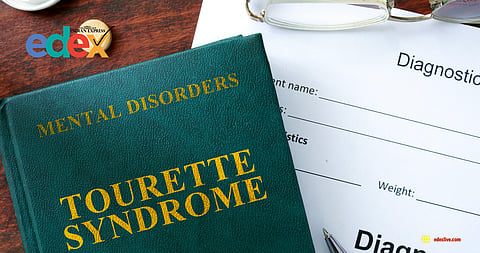

The casual use of offensive language in public discourse is growing, but for some, an uncontrollable urge to curse might signal a serious underlying neurological condition: Tourette Syndrome (TS).
Mental health experts are raising concerns as an increasing number of young adults report involuntary outbursts of profanity, a symptom linked to an imbalance in the brain's circuitry. The condition, characterised by involuntary tics—which can include vocalisations like swearing (coprolalia)— is reportedly affecting individuals between the ages of 20 and 40 most frequently, according to recent observations.
Dr Ravi Gupta, Head of the Psychiatry Department at AIIMS Rishikesh, highlighted the shift in behaviour patterns. "While occasional swearing during moments of stress or anxiety can be common, people are now using abusive language even in happy settings or casual conversations," Dr Gupta told TNIE. "In some contexts, this might be normal, but frequently, these utterances become indicators of a disorder. A person loses control over their speech and body when the basal ganglia circuit in the brain becomes unbalanced," he explained.
Sources at AIIMS Rishikesh confirm that the Psychiatry OPD is diagnosing two to three suspected cases of Tourette Syndrome every month. The syndrome primarily affects the basal ganglia circuit in the brain, often linked to impulse control disorders.
Dr Gupta further noted that in many cases, the frontal cortex circuit in the brain is also compromised. "While this condition is typically observed in children — who start swearing without reason and exhibit strange behaviours — we are now seeing it manifest prominently in older age groups," he said.
While clinical evaluation is the primary diagnostic tool, doctors sometimes require advanced imaging. "Although clinical examination confirms the diagnosis, we sometimes need MRI and CT scans of the brain to rule out other issues," Dr Gupta added, noting that no definitive physical cause for the disorder has yet been established.
The impact of these involuntary actions on daily life is significant. Dr Nisha Singla, a Senior Psychiatrist at the District Hospital, emphasized the psychological toll. "Tourette Syndrome is eroding the self-confidence of those affected," Dr Singla remarked.
"Patients often curse due to anxiety or other triggers, only to feel deep regret afterwards. This behaviour is genuinely outside their control." Dr Singla recounted interactions with her patients, "Many of the individuals who come to me express confusion, stating they have absolutely no idea why they are doing it."
